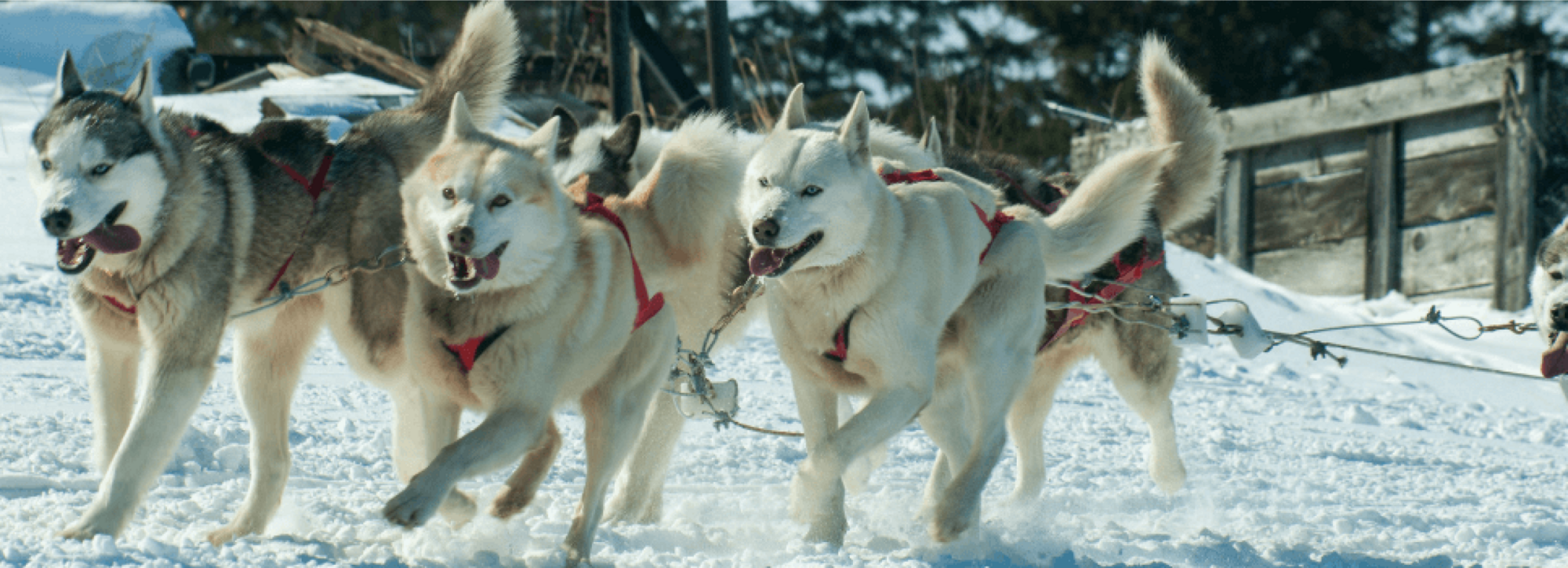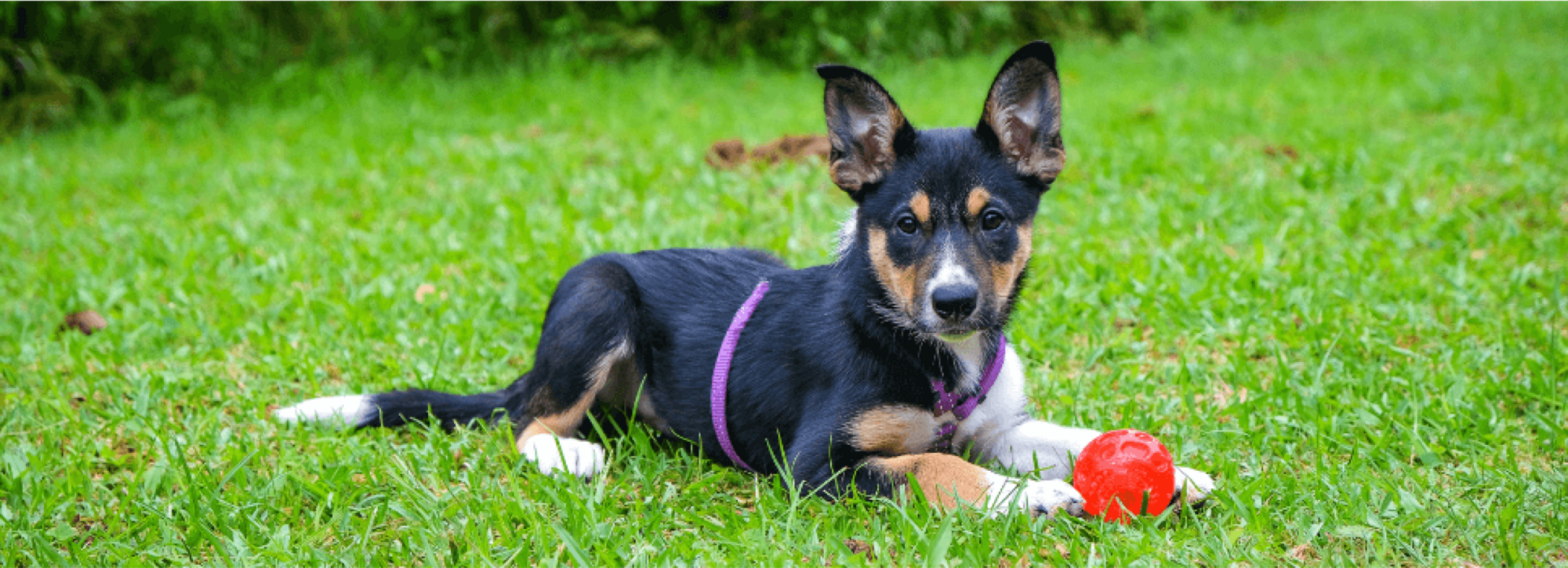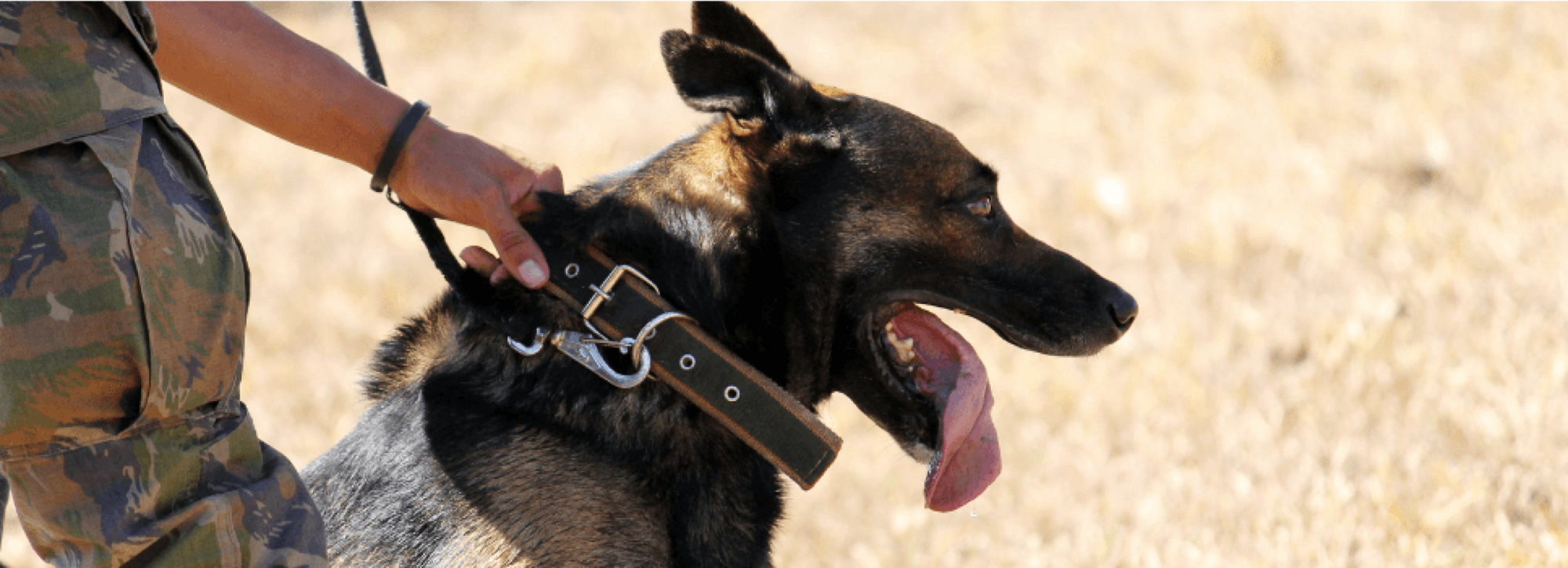Last Updated: 07/05/2025
How to Feed a Working Dog
Do you own working dogs? Take a read through our Vet-guide for all you need to know about working dog nutrition to keep them going day after day.
Author: Dr Maree Monaghan BVSc (Hons)
Reading Time: 22 minutes - medium read
Working dogs have a job to do and need food that provides a high level of energy and good quality protein to keep them going day after day.
Contents:
What is a working dog?

A working dog is one that is used to perform practical tasks, as opposed to a pet or companion dog. Working dogs like sled dogs and herding dogs are often required to work long hours in extreme environments and need a diet that supports these high demands. Dogs that work in less rigorous jobs such as security, assistance and guarding don't have such high demands on their bodies and their requirements are usually met by a premium adult dog food that is appropriate for their size and age.
Which food is the best for working dogs?

Commercial dog foods are formulated based on the nutrient requirements specified by the Association of American Feed Control Officials (AAFCO).
Protein
As a general guideline, the AAFCO requires adult dog food to contain a minimum of 18% crude protein on a dry matter basis (this is what's left after all of the moisture is extracted from the food).
Food for growing puppies and nursing mothers has a required minimum of 22.5% dry matter protein.
Working dogs need a diet which has a minimum of 25% protein, greater than 20% fat and a metabolisable energy content of over 4000 kcal/kg. Most working dog foods have protein levels above 25%, however, high protein diets often include protein sources that are not well digested by dogs. Unused protein ferments and comes out in the dog's faeces making them smell terrible!
A mixture of good quality animal and plant-based proteins is the key to providing protein sources that your dog can digest. To ensure your working dog is getting all the amino acids from protein that they need to stay healthy, look for foods that contain a variety of protein sources like beef, lamb, fish and fish meal, eggs, animal byproducts, and plant-based proteins, such as wheat or corn gluten.3
Energy
Working dogs need a lot of energy and this is supplied in the diet by fats, carbohydrates and protein. One gram of fat has 9 calories compared with one gram of carbohydrate or protein, both of which contain 4 calories.
It makes sense that working dog diets should contain high levels of fat because this is the most efficient way to provide enough energy without having to feed large volumes of food. Working dogs also benefit from a high fat diet because this can increase storage of fat in muscle and fat utilisation, which preserves glycogen within muscles and helps to increase endurance. However, a lot of working dog foods in Australia are made with large quantities of cereal grains and so contain high levels of carbohydrate. Cereal grains are inexpensive and allow the manufacture of low cost dog food that still meets the AAFCO standard for metabolisable energy content. It is important to consider where the calories in a working dog diet come from when comparing diets. Good quality diets will have the majority of their energy provided by fat and protein rather than carbohydrate.
This diet contains real chicken as the first ingredient and has added green lipped mussel powder to help support your working dogs' joint health.
Ingredients: Chicken Meal; Rice; Maize Gluten; Sorghum; Chicken Fat; Natural Flavour (Chicken); Turkey Meal; Dried Beet Pulp; Sunflower Oil; Vitamins and Minerals; Salt; Inulin; Green Lipped Mussel Powder; Antioxidants; Amino Acids (incl. Methionine).
Analysis: Crude Protein 31% Crude Fat 19% Moisture 8.5% Metabolisable Energy 3900 kcal/kg
This diet has optimal levels of protein for sustained endurance, glucosamine and chondroitin for joint support and antioxidants to protect against free radicals.
Ingredients: Dehydrated poultry, brewers rice, chicken fat, corn, corn gluten meal, hydrolysed poultry protein, dried plain beet pulp(2.5%), powdered cellulose, fish oil, sodium silicon aluminate, sunflower oil, potassium chloride, powdered psyllium seed husk, sodium tripolyphosphate(.35%), vitamins (DL -alpha tocopherol acetate(source of vitamin E), L-ascorbyl-2-polyphosphate source of vitamin C), vitamin A, vitamin B5,vitamin B6,biotin, folic acid, vitamin B12,vitamin B1, Vitamin B3,vitamin B2,salt, choline chloride, DL - methionine, hydrolysed yeast (0.19%), marigold extract(Tagetes erecta L.),taurine, antioxidants, glucosamine hydrochloride, trace minerals (zinc, manganese, copper, potassium, sodium selenite), magnesium oxide, L-carnitine, carotene, chondroitin sulphate.
Analysis: Crude Protein 32% Crude Fat 22% Moisture 8% Metabolisable 4249 kcal/kg
This working dog formula is high in protein with pasture grazed lamb and beef, a rich source of zinc and vitamin B12 for heart health, lean muscles and a healthy metabolism.
Ingredients: Lamb Meat Meal, Beef Meat Meal, Oats, Pea Protein, Rice, Chicken Fat (preserved with Mixed Tocopherols [source of Vitamin E], Citric Acid, Rosemary Extract), Field Peas, Fish Meal, Chicken Meal, Canola Oil, Beet Pulp, Essential Vitamins & Minerals (see tables), Eggs Dried, Fish Oil, Salt, Brewers Yeast, Flax Seed, Chicory Root, Natural Antioxidants, Emu Oil, Omega 6 Fatty Acids, Omega 3 Fatty Acids, Carrot, Yucca Schidigera, Tomato Powder, D-Glucosamine, Chondroitin, Blueberries, Cranberry, Dandelion Tea, Peppermint Tea, Kelp, Spinach, Rosemary.
Analysis: Crude Protein 32% Crude Fat 22% Moisture 10% Metabolisable Energy 4090 kcal/kg
Feeding working dog puppies

The success of a working dog's career starts before they are born and depends heavily on the quality of the food their mother is fed when she is carrying them. A premium quality puppy food is recommended for pregnant bitches in the last 3 weeks of their pregnancy and when they are lactating. When it is time to wean the pups, they can have the same food the bitch is being fed.
Recommended Working Puppy Food
When to feed working dogs

Common sense would tell you that you shouldn't give a working dog a large meal before exercise. Research shows that dogs should not be worked within 8 hours of a small meal or up to 16 hours after a large meal to allow the stomach to empty completely. What you may not know is that the proteins and carbohydrates in muscles that are used up during exercise are replaced more rapidly when a meal is provided with two hours of exercise.
Further Reading
Want to know more? Check out our Discover Page for more tips from our expert vets on keeping your pets happy and healthy.
1. "Feeding Working Dogs" World Small Animal Veterinary Association World Congress Proceedings, 2013, Nick Cave, BVSc, MVSc, PhD, DACVN Massey University, Palmerston North, New Zealand.
2. "Nutrition of the dog : an Australian overview." Costa, ND Livestock Library
3. High Protein Dog Food: How Much Protein is Good for Your Dog? Hills Pet Nutrition
4. Veterinary Nutrition Group "Fat content of some commercial diets for dogs"